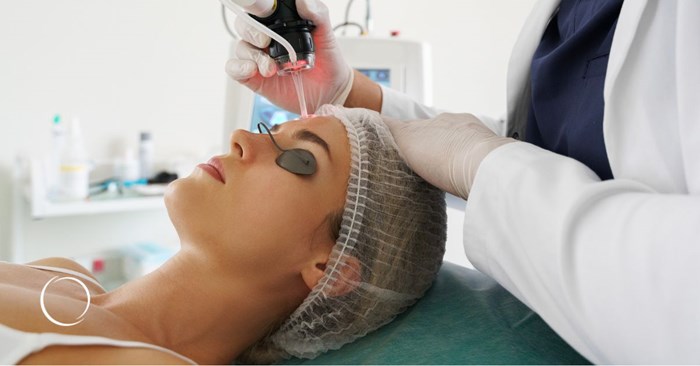
25 Aug Types of Laser Skin Treatments Plastic Surgery Clinics Offer
Laser technology is a key tool in modern plastic surgery, offering precise solutions for various skin concerns. These treatments use controlled light energy to address specific conditions with tailored wavelengths and techniques. Understanding your options can help you select the most suitable laser treatment for your particular skincare needs.
Acne Treatment Options
Laser therapy for acne is a treatment often offered at plastic surgery clinics, addressing both active breakouts and scarring. Fractional lasers create controlled micro-injuries in the skin, stimulating collagen production to diminish scars. For optimal results, multiple sessions are usually required. Intense pulsed light (IPL) therapy, another option frequently available in plastic surgery practices, targets acne-causing bacteria and reduces inflammation, helping to clear breakouts and prevent future ones.
For severe acne scarring, CO2 laser resurfacing offers a more intensive solution. This ablative procedure removes damaged layers of skin, allowing fresh, healthier skin to develop during the healing process. CO2 laser treatments often require a longer recovery time compared to other laser therapies. Together, these advanced treatments provide tailored options to address a range of acne concerns.
Skin Cancer Detection
Plastic surgery clinics utilize advanced laser systems for managing skin cancer under the guidance of medical professionals. Photodynamic therapy, which combines light-sensitive medication with specific wavelengths of light, targets abnormal cells effectively. These innovations aim to improve treatment precision and patient outcomes.
Early detection is key to successful skin cancer treatment. Laser-assisted procedures enhance visualization techniques, making it easier to identify suspicious lesions. A definitive diagnosis still requires a biopsy and thorough pathological examination.
Lasers also play a role in removing precancerous lesions. These treatments often complement traditional surgical methods to deliver comprehensive care. Together, they offer patients a comprehensive approach to addressing skin cancer concerns.
Rosacea Management
Laser treatments are highly effective in managing rosacea symptoms, particularly redness and visible blood vessels. Pulsed dye lasers target dilated blood vessels beneath the skin, reducing facial redness and improving skin tone. The laser energy is absorbed by hemoglobin, causing the vessels to collapse and fade gradually. Multiple sessions are typically required for optimal results, with patients experiencing steady improvement over time. Many also report fewer episodes of flushing after treatment.
Skin Tag Removal
Laser removal of skin tags is a precise and effective alternative to traditional excision methods. Using focused light energy, lasers destroy the targeted tissue while minimizing harm to surrounding healthy skin. CO2 lasers are particularly popular for this treatment, offering excellent control and accuracy in targeting benign growths. Compared to surgical procedures, laser removal typically involves minimal recovery time, making it a convenient choice for patients.
Another option for skin tag removal is the use of Erbium lasers, which are especially suitable for smaller lesions. These systems provide controlled ablation while reducing thermal damage to nearby tissues. This makes Erbium lasers a reliable choice for patients seeking a less invasive approach. Both laser methods offer precise results and faster healing, resulting in a smoother overall treatment experience.
Move Forward with Plastic Surgery
Laser skin treatments in plastic surgery offer effective solutions for a range of skin concerns. With the advancement of technology, patients now have more sophisticated options for skin improvement. A consultation with a qualified plastic surgeon can help address your specific needs. Personalized recommendations mean treatments are tailored to your goals.
- Digital Fairways Lawsuit – Full Breakdown of Allegations, Timeline & What Victims Must Know
- Tuna Noodle Casserole – Easy, Creamy & Delicious Family Recipe
- Claude Edward Elkins Jr – From Brakeman to Norfolk Southern Executive Leader
- Motley Crue Members – Complete Guide to Band Lineup, Roles, and History
- Lotus Flower – Meaning, Symbolism, and Uses Explained

